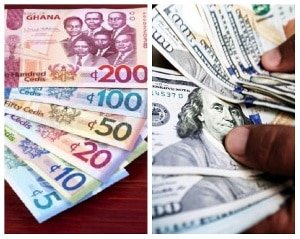The Ghana cedi experienced significant depreciation last week due to increased corporate demand pressures, after maintaining stability the previous week,
The local currency fell by 1.48% week-on-week against the US dollar, trading at a bid-offer rate of GH¢15.75/16.00 on the retail market. The cedi also depreciated by 2.80% and 2.18% against the British pound and the euro, respectively.
In June 2024, Ghana’s refined oil imports surged to US$428.3 million from US$422.6 million in May, driven by heightened demand from oil importers.
The Central Bank intervened by selling US$40 million to oil importers through the Bulk Oil Distributors Foreign Exchange (FX) auction. Despite this, the persistent demand from oil importers contributed to a 4.46% month-on-month depreciation of the cedi against the US dollar in June 2024.
Analysts view the higher oil import bill and the resulting increase in FX demand as a downside risk to net foreign reserves, anticipating further pressure on the cedi in the near term. Consequently, they expect the local currency to continue weakening this week as corporate demand pressures escalate.
Currently, the cedi is trading at GH¢15.88 to the US dollar on the retail market.
According to the Bank of Ghana, the cedi has depreciated by approximately 19.6% against the US dollar on the interbank forex market as of July 2024, compared to a 21% loss on the retail market.
The Central Bank’s July 2024 Summary of Financial and Economic Data indicates that the cedi lost 7.7% against the dollar in March 2024, 10.5% in April 2024, 15.9% in June 2024, and 18.6% in July 2024.

